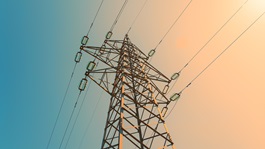
Publication
Watt’s up: Regulatory round-up – August 2025
Norton Rose Fulbright provides a monthly overview of the key updates to Australian East Coast energy regulation.


The No Surprises Act was supposed to allow fair payments to out-of-network air ambulance providers while shielding patients from unexpected medical bills for these life-saving transports.
However, less than two years since the act went into effect, the independent dispute resolution program has been shut down to new air ambulance claims for an indefinite amount of time, leaving no way to challenge low payments from insurers and health plans.
As the shutdown nears its third month, national air ambulance provider Air Methods Corp. has filed for bankruptcy in the U.S. Bankruptcy Court for the Southern District of Texas, citing the No Surprises Act as a major contributor to its financial troubles. Its filing demonstrates the urgent need to reopen the IDR program for air ambulances.
Read the full Law360 article, "Air ambulance Ch. 11s show dispute program must resume."

Publication
Norton Rose Fulbright provides a monthly overview of the key updates to Australian East Coast energy regulation.

Publication
In <em>V & Anor v K</em> [2025] EWHC 1523 (Comm), the Commercial Court has dismissed jurisdictional and serious irregularity challenges under sections 67 and 68 of the Arbitration Act 1996 arising out of an LMAA arbitration.
Subscribe and stay up to date with the latest legal news, information and events . . .
© Norton Rose Fulbright LLP 2025